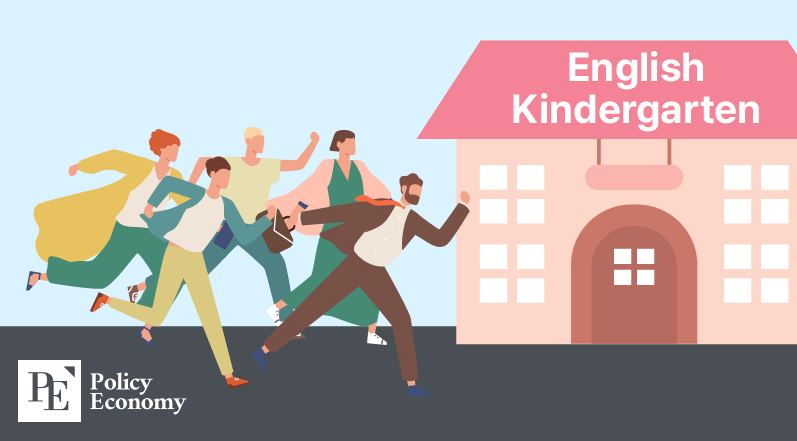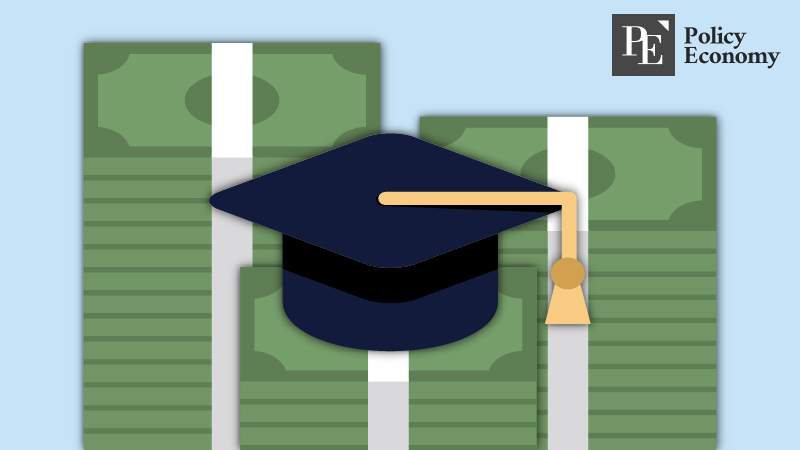Costly English Preschools May Backfire: Negative Impact on Learning and Self-Esteem
Input
Modified
Study Finds Private Early Childhood English Education Has Limited Impact No Significant Gains in Language or Vocabulary Development Minimal Effect on Overall Academic Performance

As competition intensifies to gain admission into elite English-language preschools—so much so that children as young as four are taking what are dubbed “toddler entrance exams”—a new study has cast serious doubt on the effectiveness of early childhood private education. The research found no measurable benefits in language development or problem-solving abilities among children who received such early education. More concerning, however, is the finding that early private education may negatively affect children’s emotional well-being, particularly their self-esteem. The study serves as a stark warning against the growing frenzy over early academic acceleration and unregulated preschool tutoring.
Excessive Private Tutoring Erodes Children's Self-Esteem
On April 15 (Korea time), Kim Eun-young, senior researcher at the Korea Institute of Child Care and Education (KICCE), presented new empirical findings during a lecture titled “Is Private Education in Early Childhood Really Necessary?” for Ministry of Education staff. Kim is the lead author of the study “The Impact of Early Childhood Private Education on Child Development.”
According to the study, early private education had no significant positive correlation with children’s overall language abilities or vocabulary in first grade. The effects remained negligible across other metrics such as language skills, problem-solving ability, and executive functioning throughout early elementary school. The only exception was that arts-related extracurriculars appeared to enhance children's preventive reasoning skills, suggesting some limited benefits in that domain.
The study also found no correlation between private education and emotional or behavioral traits such as conscientiousness, self-esteem, openness, or empathy. On the contrary, early private education was associated with no benefits—or even negative effects—on self-esteem and life satisfaction, indicating that its social-emotional value may be overstated.
Kim noted, “Even after controlling for factors like IQ, household income, and parental education, the independent effect of private education was minimal.” She suggested that the role of private education in child development has been overstated, and emphasized that parental care may be more critical than cram schools during early childhood.
Government’s First Study Reveals Hidden Costs of English Preschool
The government’s first in-depth evaluation of English-language kindergartens revealed not only limited educational benefits but also significant economic and social side effects. As anecdotal evidence of early education stress mounted, the government initiated a formal study in 2023. According to the report, among over 1,000 surveyed parents, 37.1% enrolled their children in private education, with English topping the list in both time and financial investment. Parents cited expectations that early exposure would spark interest and lead to better outcomes.
But results told a different story: 26.7% of parents said their children experienced stress from English learning; while 34.3% reported conflict with their children over it. Expectations fell short across all surveyed criteria, while negative effects exceeded predictions
Economically, the burden was no less stark. About 42.2% of families said they cut back on essential spending (e.g., food, clothing) to afford private education; while 41.3% said the costs made them reconsider having additional children. Over 90% of parents felt private education in South Korea was overheated, and blamed it for deepening regional and class divides

Children Pushed Into “Entrance Exams at Age Four” for English Kindergartens
Amid rising parental anxiety, the private education market for toddlers has ballooned into a hyper-competitive battlefield, exemplified by the now-common “4-year-old entrance exams.” These are selective assessments used by elite English kindergartens to screen for basic intellectual ability and English proficiency. Successful applicants often attend the kindergarten for 2–3 years, followed by entry exams at top-tier English academies—a pattern that mimics the previous “7-year-old exam” trend.
The motivation behind this double-testing is simple. Parents want their children to reach functional English fluency by early elementary school, ideally before middle and high school entrance exams loom. The concern is that, despite the Korean SAT’s shift to absolute grading in English since 2018, lagging early skills may later hinder university competitiveness. In today’s climate—where even “pre-med tracks for elementary students” exist—this "N-year-old exam" phenomenon is growing.
Driven by the belief that “earlier is better” for English learning, competition for elite kindergartens has intensified. For some schools, advance registration or years-long waiting lists are required. Admission rates are as competitive as 3:1 to 5:1. For many families, these institutions represent the first step in a structured admissions pipeline:
English Kindergarten → Elite Elementary School → Pre-Med Track → Gifted High School Program
Some parents even hire tutors or send toddlers to preparatory academies to pass entrance assessments. In Seoul’s affluent Gangnam district, “PREP” schools—named after the word “preparation”—have emerged to train 3–4-year-olds for elite kindergarten admissions. This phenomenon underscores South Korea’s entrenched reputation as a “Republic of Private Education,” where schooling begins before formal school and childhood becomes a high-stakes race.





















